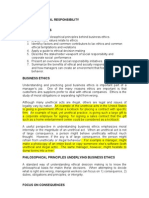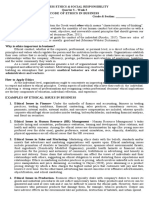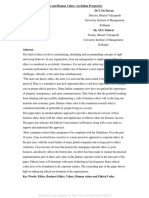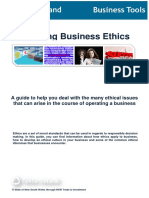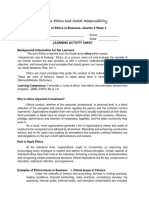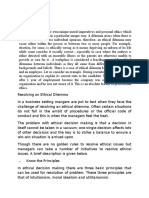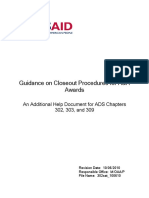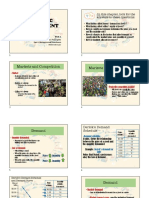0% found this document useful (0 votes)
41 views14 pagesExplain How Managers Can Incorporate Ethical Considerations Into Their Decision Making
Managers in multinational firms can incorporate ethical considerations into decision-making by hiring individuals with strong personal ethics, fostering an ethical organizational culture, and implementing structured decision-making processes that prioritize ethical implications. They should also appoint ethics officers to oversee adherence to ethical standards and encourage moral courage among employees to challenge unethical practices. These strategies aim to ensure that ethical principles are consistently integrated into international business decisions.
Uploaded by
serolfjen95Copyright
© © All Rights Reserved
We take content rights seriously. If you suspect this is your content, claim it here.
Available Formats
Download as DOCX, PDF, TXT or read online on Scribd
0% found this document useful (0 votes)
41 views14 pagesExplain How Managers Can Incorporate Ethical Considerations Into Their Decision Making
Managers in multinational firms can incorporate ethical considerations into decision-making by hiring individuals with strong personal ethics, fostering an ethical organizational culture, and implementing structured decision-making processes that prioritize ethical implications. They should also appoint ethics officers to oversee adherence to ethical standards and encourage moral courage among employees to challenge unethical practices. These strategies aim to ensure that ethical principles are consistently integrated into international business decisions.
Uploaded by
serolfjen95Copyright
© © All Rights Reserved
We take content rights seriously. If you suspect this is your content, claim it here.
Available Formats
Download as DOCX, PDF, TXT or read online on Scribd
/ 14

